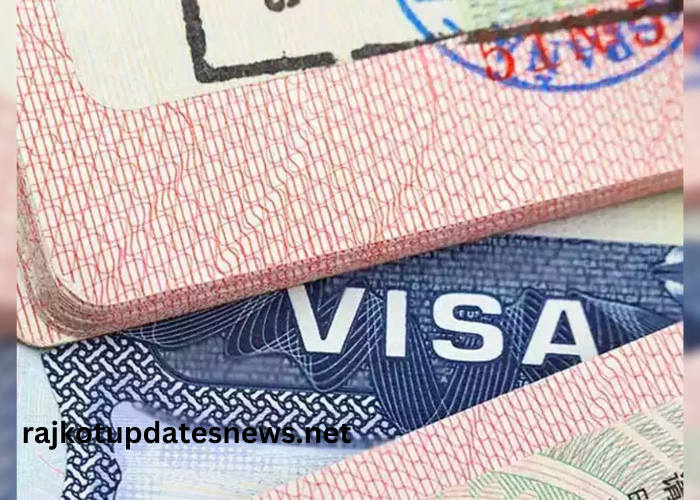The H-1B visa program has been a crucial pathway for skilled professionals, particularly from India, to work in the United States. However, the limitations placed on the spouses of these visa holders have long been a point of contention. In a significant policy shift, the U.S. government has granted work permits to the spouses of H-1B visa holders, a move that is expected to bring substantial benefits to the families of these professionals and to the U.S. economy. This article explores the implications of this decision, the background of the H-1B visa program, and the potential impacts on Indian families and the broader workforce.
Background of the H-1B Visa Program
The H-1B visa program allows U.S. companies to employ foreign workers in specialty occupations that require theoretical or technical expertise. This program is especially popular among tech companies, consulting firms, and universities.
Indian nationals have historically been the largest beneficiaries of the H-1B visa program, contributing significantly to the U.S. tech industry and economy. Despite its benefits, the program has faced criticism and calls for reform, particularly regarding the limitations imposed on the spouses of H-1B visa holders.
Challenges Faced by H-1B Spouses
Prior to the policy change, spouses of H-1B visa holders, who typically hold H-4 visas, were not permitted to work in the United States. This restriction led to several challenges, including financial strain, underutilization of skilled professionals, and personal dissatisfaction among H-4 visa holders.
Many spouses, despite having advanced degrees and professional experience, were forced to remain unemployed, leading to a loss of potential economic contributions and professional fulfillment.
Policy Change and Its Significance
The decision to grant work permits to H-4 visa holders marks a significant policy shift. This change allows spouses of H-1B visa holders to seek employment, thereby alleviating financial pressures and enabling them to contribute to the U.S. economy. The policy change is expected to benefit thousands of Indian families living in the United States, providing them with greater financial stability and personal satisfaction.
Impact on Indian Families
For Indian families in the U.S., this policy change is a major relief. It not only improves their financial situation but also enhances the overall well-being of H-4 visa holders. Many spouses, who were previously confined to household roles, can now pursue their careers, leading to increased happiness and fulfillment. This change also fosters a more inclusive and diverse workforce, as skilled professionals from various fields can now contribute to the U.S. economy.
Economic Benefits for the U.S.
Allowing H-4 visa holders to work is expected to have positive economic impacts. It will increase the labor force participation rate, contribute to economic growth, and help address skill shortages in various industries.
The inclusion of highly skilled professionals in the workforce can lead to innovation, improved productivity, and a more competitive economy. Moreover, this policy change can attract and retain global talent, as it makes the U.S. a more attractive destination for skilled professionals and their families.
Enhancing the U.S. Tech Industry
The tech industry, which heavily relies on H-1B visa holders, stands to gain significantly from this policy change. Many H-4 visa holders possess advanced degrees and expertise in technology and engineering.
Their entry into the workforce can help address the talent gap in the tech industry, driving innovation and growth. Companies can benefit from the diverse perspectives and skills that these professionals bring, enhancing their competitiveness in the global market.
Social and Psychological Benefits
The ability to work legally provides H-4 visa holders with a sense of purpose and identity. It alleviates the social isolation and psychological distress that many spouses experience due to their inability to work.
Engaging in meaningful employment can lead to improved mental health, self-esteem, and overall well-being. This policy change recognizes the potential and aspirations of H-4 visa holders, allowing them to lead more fulfilling lives.
Educational and Professional Opportunities
With work permits, H-4 visa holders can now pursue educational and professional opportunities that were previously inaccessible. They can seek higher education, certifications, and training programs that can enhance their skills and career prospects.
This not only benefits the individuals but also contributes to the overall talent pool in the U.S. The policy change opens doors to a wide range of opportunities, enabling H-4 visa holders to realize their potential and achieve their career goals.
Addressing Skill Shortages
The U.S. labor market faces skill shortages in various sectors, including healthcare, education, and engineering. Granting work permits to H-4 visa holders can help address these shortages by tapping into a pool of highly skilled professionals.
This can lead to improved service delivery, innovation, and economic growth. The inclusion of H-4 visa holders in the workforce can help meet the demand for skilled labor, ensuring that industries can thrive and compete globally.
The Process of Obtaining Work Permits
Obtaining a work permit involves a legal process that includes filing necessary documentation and meeting specific eligibility criteria. H-4 visa holders must apply for an Employment Authorization Document (EAD) through the U.S.
Citizenship and Immigration Services (USCIS). The process requires accurate and timely submission of forms, supporting documents, and fees. It is important for applicants to understand the requirements and seek legal assistance if needed to ensure a smooth and successful application process.
Challenges and Criticisms
Despite the positive impacts, the policy change has faced criticism and challenges. Some argue that it could increase competition for jobs and affect employment opportunities for U.S. citizens.
There are also concerns about potential exploitation and unfair treatment of H-4 visa holders in the labor market. Addressing these challenges requires careful monitoring, regulation, and enforcement of labor laws to ensure that the policy benefits both the U.S. economy and H-4 visa holders.
The Role of Advocacy and Community Support
The policy change is a result of persistent advocacy by various organizations, community groups, and individuals who have highlighted the challenges faced by H-4 visa holders. Their efforts have been instrumental in bringing about this positive change.
Continued advocacy and community support are crucial to ensure that the rights and interests of H-4 visa holders are protected. Engaging with policymakers, raising awareness, and providing support services can help address ongoing challenges and promote the well-being of H-4 visa holders.
Global Implications
The decision to grant work permits to H-4 visa holders has global implications. It sets a precedent for other countries to recognize the contributions and potential of immigrant spouses. This policy change reflects a broader trend towards more inclusive and equitable immigration policies.
By acknowledging the value of diverse talent, countries can foster economic growth, innovation, and social cohesion. The U.S. decision can inspire other nations to adopt similar measures, promoting global talent mobility and integration.
Future Prospects
The future prospects for H-4 visa holders and their families are promising. The ability to work legally opens up new opportunities for personal and professional growth. It also enhances the attractiveness of the U.S. as a destination for skilled immigrants and their families.
Continued policy reforms and support for immigrant families can further strengthen the U.S. economy and society. By recognizing the contributions of H-4 visa holders, the U.S. can build a more inclusive and prosperous future.
Conclusion
The decision to grant work permits to the spouses of H-1B visa holders is a significant and positive development for thousands of Indian families living in the United States. This policy change not only improves their financial stability and personal satisfaction but also contributes to the U.S. economy by tapping into a pool of highly skilled professionals.
While challenges and criticisms remain, the overall impact is expected to be beneficial, promoting economic growth, innovation, and social well-being. As the U.S. continues to evolve its immigration policies, recognizing the value and potential of diverse talent will be crucial in building a more inclusive and prosperous society.

